Sabah ends its days as being BN’s ‘fixed deposit’ state
KUALA LUMPUR — One of the biggest surprises or shock—depending on who you are talking to—in the May 9 general election was how Sabah voted.
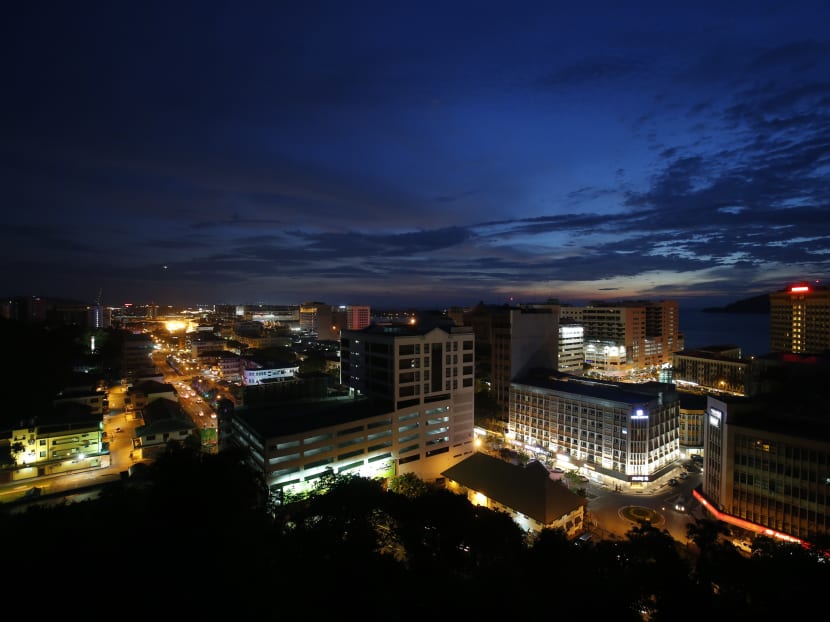
A general view of Kota Kinabalu, the capital of Malaysia's state of Sabah, during sunset. The then state opposition led by Parti Warisan Sabah and Pakatan Harapan parties overtook Barisan Nasional in the race for popular votes, ending Sabah’s image as BN’s fixed deposit state.
KUALA LUMPUR — One of the biggest surprises or shock—depending on who you are talking to—in the May 9 general election was how Sabah voted.
Malay Mail’s calculations show Barisan Nasional (BN) lost the popular vote in the contest for parliamentary seats by only winning 39.80 per cent of the 843,101 valid votes cast there, against the 49.51 per cent won by the combination of Parti Warisan Sabah (Warisan) and the now-ruling Pakatan Harapan (PH) coalition.
If BN’s Tuaran MP Datuk Seri Wilfred Madius Tangau’s post-elections switch-over to PH and State Reform Party's (Star) alignment with BN is taken into account, BN’s vote share will be 39.67 per cent and the PH-Warisan vote share will be 52.18 per cent.
The 14th general election results, however, show a continued decline for BN from past elections. Back in Election 2008, BN had won 61.2 per cent of the popular vote against Parti Keadilan Rakyat (PKR) and Democratic Action Party’s (DAP) 32.9 per cent.
BN had managed to retain the popular vote in Election 2013 but at a reduced share of 54.8 per cent, against the then PKR-DAP-PAS combo of 36 per cent.
Beyond losing the popular vote in Sabah, BN took in only 40 per cent or 10 of the 25 federal seats, while the then Opposition of PH-Warisan made massive inroads by winning 56 per cent or 14 seats. Star won the remaining seat.
This will be the Opposition’s (now ruling coalition) best performance since 1990 or in almost 30 years.
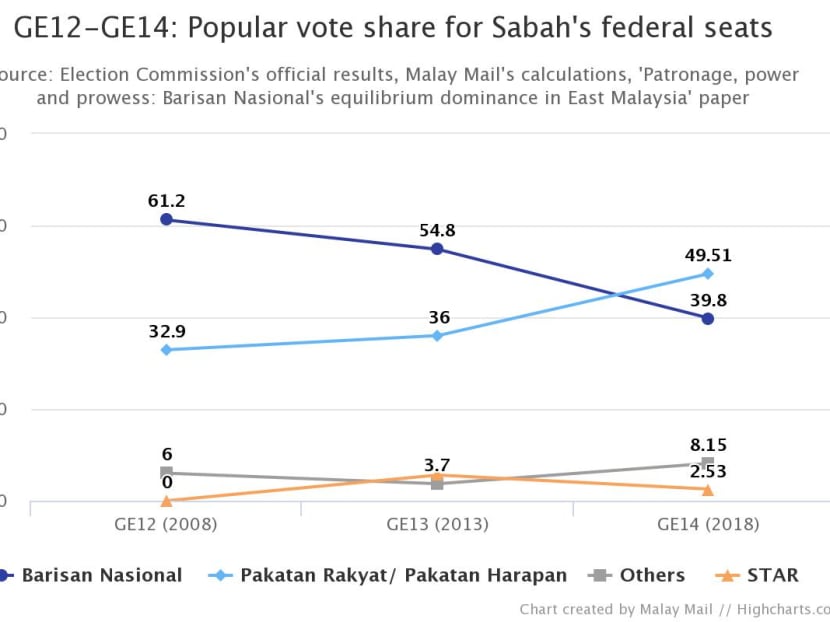
BN had always won the majority of federal seats in Sabah in past general elections since Malaysia was formed, except for one single occasion in 1990 when the United Sabah Party (PBS) won 14 against the BN’s win of six seats out of the 20 parliamentary seats available then.
That meant PBS, as the opposition, won 70 per cent of the seats while BN took the remaining 30 per cent in 1990. This was practically unimaginable, with subsequent polls seeing BN make a clean sweep and ceding only one to three seats each time to others.
But that happened only due to PBS’s pulling out of the ruling BN coalition just a few days before voting day in 1990 to join the federal Opposition. As that occurred after Nomination Day, BN could not nominate its own candidates against the by-then Opposition party.
BN’s poor showing in the Sabah GE14 parliamentary seat contest also coincides with the coalition losing federal power for the first time, as it failed to achieve the simple majority of 112 federal seats unlike PH and Warisan.
For an idea of how important Sabah is to BN, the coalition won only 79 parliamentary seats nationwide in GE14 with 10 seats or 12.66 per cent contributed by Sabah, 19 seats in Sarawak and only 50 seats in peninsular Malaysia.
Sabah and Sarawak together contribute 29 seats or 36.71 per cent, just above one-third of BN’s seats.
In fact, BN would not have retained federal power in both Election 2008 and Election 2013 without seats won in Sabah and Sarawak. Both states combined contributed a total of 38.57 per cent and 35.34 per cent of BN’s nationwide seat haul of 140 and 133 during the two elections in 2008 and 2013.
In both 2008 and 2013, BN won only 86 seats in peninsular Malaysia — 26 seats short of the 112 simple majority requirement.
Both Sabah and Sarawak could continue to play the role of “kingmaker” as PH in peninsular Malaysia won 97 seats in GE14 — 15 seats shy for a simple majority.
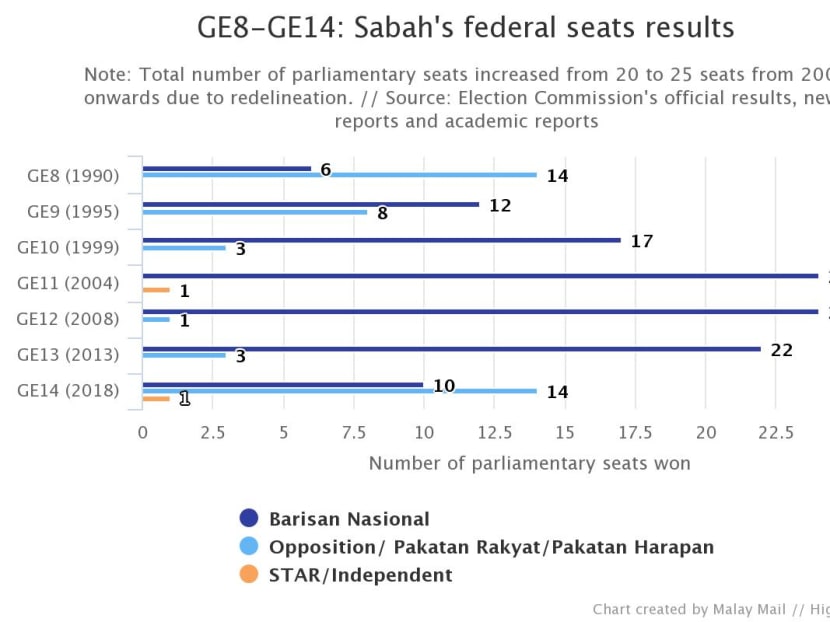
NOT FIXED DEPOSIT FOR ANYONE
Associate Professor Faisal Hazis from Universiti Kebangsaan Malaysia said Sabah was obviously no longer a fixed deposit for BN or any other party.
“Even in the last GE also, there was already a shift among KDM (Kadazan, Dusun, Murut) voters in the west coast (of Sabah). If not because of multi-corner contests in GE13, the opposition could have won more seats in the west coast.
“The main difference between this election and the last election, this election there was a shift in the east coast as well among the Muslim Bumiputera,” he told Malay Mail.
“Definitely with the rise of parties like Warisan and I think continued influence of national opposition parties like PKR and DAP there, I think the image of Sabah being a fixed deposit state for any political party for that matter is basically being crushed in this election.
“You can see how tightly contested the state was. They almost went into a crisis with two chief ministers because there was no single political party that was the dominant party,” he added.
Assoc Prof Faisal was referring to the GE14 results for Sabah’s 60 state seats, where BN won 29 seats and Warisan-PH also won 29 seats, with Star winning the remaining two seats.
BN’s Tan Sri Musa Aman was initially sworn in as chief minister after Star joined the coalition there, but Warisan’s leader Datuk Seri Mohd Shafie Apdal has since been sworn in after BN lawmakers defected to his side to form the state government.
“Unless there is a massive jump from BN party or other local-based party to Warisan and PKR, if there is no massive change of party, Sabah would remain a hotly-contested state. This is not only true for Sabah, we can see how throughout the country, the election was closely contested,” Assoc Prof Faisal said.
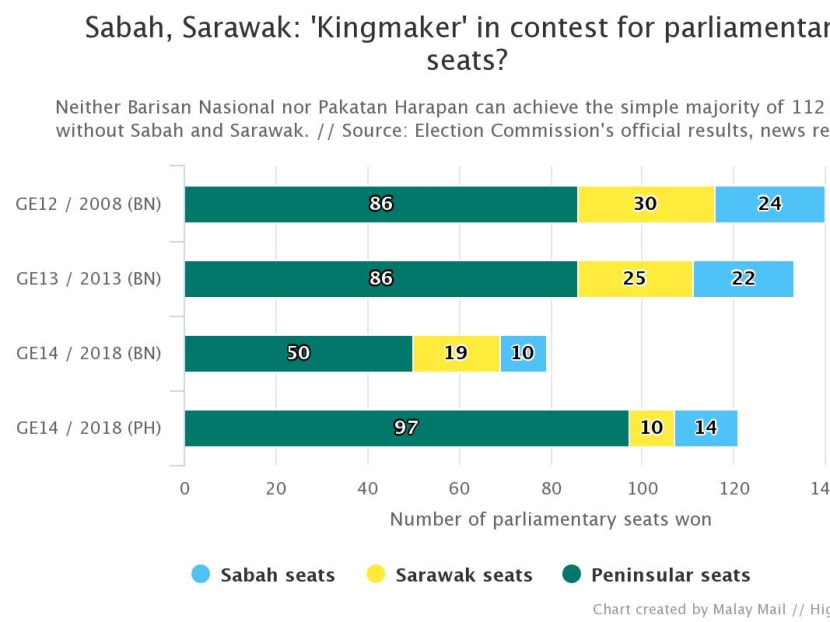
The competition in Sabah was extremely stiff with almost half or 11 of the 25 parliamentary seats having four-cornered fights, while three seats had five candidates each and two seats had six. The remaining eight seats were three-cornered fights and only one seat had a straight fight.
The 60 state seats in Sabah saw an intense contest in GE14, with almost half or 26 seats having four-cornered fights, while 13 and 12 seats respectively had five-cornered and three-cornered fights. Less common was the six-cornered fight (six seats), straight fight (two seats) and a single seat with seven candidates.
Independent researcher Andrew Aeria said both Sabah and Sarawak could no longer be considered a fixed deposit for BN, owing to the shift in vote share and number of seats won, and also as PH’s position now as the federal government meant that voters are no longer confined to the idea that only voting BN would ensure development there.
“I’ll be surprised if BN in Sabah and Sarawak survive the next two years in the form they are in. They will probably implode,” he said, claiming that the coalition in East Malaysia tends to be motivated by self-interests and allegedly only ran development programmes as the then BN federal government was “pushing for the development agenda.”
He said the Sarawak and Sabah BN could carry out its role as opposition lawmakers by seeking to work with the PH on issues that it can agree on, or provide constructive and intelligent opposition in a robust manner, adding: “That’s the mark of a healthy democracy”.
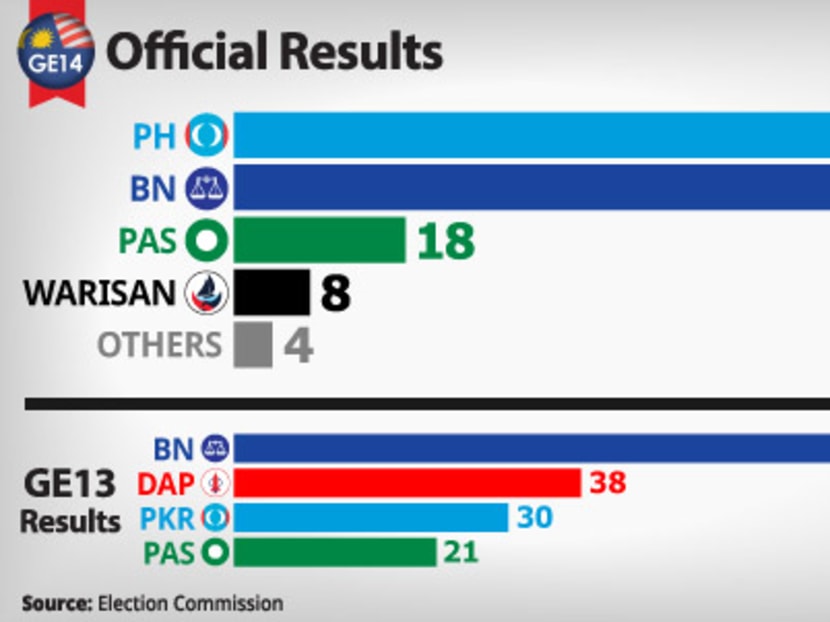
Assoc Prof Jeniri Amir from Universiti Malaysia Sarawak (Unimas), noted that the BN’s decline in its share of the popular vote in Sabah was due to reasons such as the Goods and Services Tax (GST) and said Sabah is no longer a fixed deposit for BN.
“I think the tipping point was Shafie Apdal because he’s the leader of Warisan and he managed to turn the tables around including in KDM seats.
“You can see the popular vote plummeted, went down drastically — to show people are against BN irrespective of ethnic groups and areas, be it rural or urban. It’s a strong anti-BN sentiment.
“People are fed up including with state government, including Musa Aman and of course other factors like 1MDB, abuse of power... people couldn’t take it anymore, that’s a tipping point,” he told Malay Mail. MALAY MAIL






